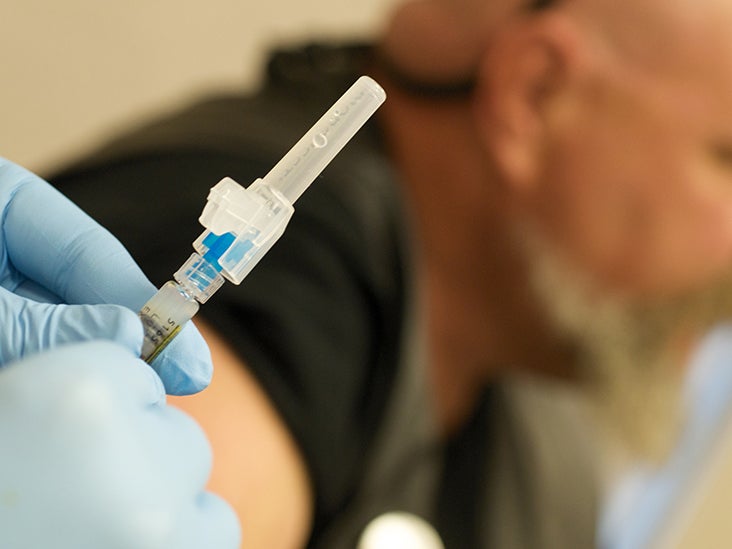Newer studies, however, have looked into inactivated vaccines — particularly the diphtheria, tetanus, and pertussis (DTP) vaccines — to see if previous inoculations translate into less severe manifestations of COVID-19.
Because immunity wanes over time, especially when people do not receive booster shots, the researchers concluded that this could explain why older adults have more susceptibility to COVID-19.
Despite diphtheria, tetanus, and pertussis being caused by bacteria and COVID-19 by a virus, multiple studies have demonstrated heterologous immunity.
In line with that hypothesis, a recent study — which has not yet undergone peer review — added to existing research and suggested that older adults who have received a diphtheria or tetanus vaccine booster within the past 10 years may have a lower risk of severe COVID-19.
The results of the UK Biobank analysis showed that those who had received either a tetanus or diphtheria booster were less likely to receive a positive SARS-CoV-2 test.
Those who had received a tetanus booster were half as likely to develop severe COVID-19, and those who had received a diphtheria booster were 54% less likely.
The researchers found “no significant differences in the likelihood to test positive or [have] a severe case†with the pertussis vaccine, and they noted the small sample size.
In most countries around the world, people receive vaccinations against tetanus in childhood, along with diphtheria and pertussis or polio.
Officials also recommend regular boosters for tetanus, diphtheria, and, in some cases, pertussis in many European countries, especially for older adults.
According to World Health Organization (WHO) data from 2019, African countries such as Congo, Cameroon, Angola, and Ethiopia — where dropout rates for immunization are considerably high for vaccines that need repeating — only around 60% or less of the population receive their third tetanus booster shots later in life.
However, the authors of the study do acknowledge that their data cannot establish a causal link between vaccine boosters, in particular diphtheria and tetanus, and the severity of COVID-19 but instead suggest a strong correlation.
They attribute the effect of the booster shots to a degree of protection against severe symptoms by way of stimulating the immune system.
This is a potent reminder to receive not only a COVID-19 vaccine as soon as possible, but other routine vaccines when they are due.â€.
